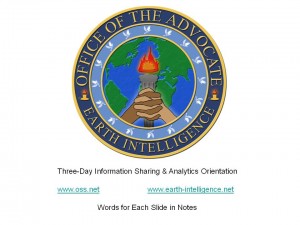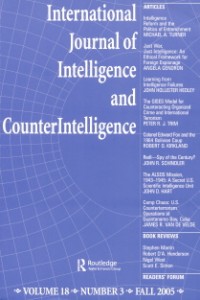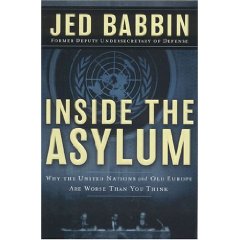I give this book five stars instead of four, which I would normally assign, because the shortfalls in the book, most especially a lack of context, notes, and additional detail, are out-weighed by the timeliness, relevance, utility, and able original presentation.
This is an important book for our time. Indeed, I put it down thinking that the author has presented us with a meal of worms–and only those visible at the top of the planter box–but when you are starving–when there is no other viable alternative for peacekeeping–worms can be appetizing.
Before I present some details that made it to my fly-leaf notes, a few “big points” that stayed with me:
1) UN is a grotesque failure in many many ways, but also the closest thing we have to a viable global enterprise, hence, a good starting point for all its flaws.
2) Not addressed at all in the book, spoken of only in passing, the rather important point that most UN agencies are not at all subordinate to nor responsive to the Secretary General and his Secretariat.
3) The UN suffers from two major impediments: first, that the contributing or Member nations do not really want it to be effective, and ham-string it, particularly the Security Council members, although the author is vitriolic on China and Russia vetoing votes, while strangely silent on the US and its constant veto; and second, that personal relations built over decades far out-weight actual job titles and responsibilities, and can be blamed for many things including the Oil for Food corruption nightmare.
4) The author gently explores three major alternatives to the current situation:
4a) the division of the UN into a global body for mobilizing resources and consensus; and a separate global police or gendarme force. I would note, with a genuflection toward Oakley et all in “Policing the New World Disorder,” that this needs to be standing force or at least an earmarked force, ideally led by the Dutch, which trains together and has inter-operable concepts, doctrines, and equipment. See also the edited work, “Peacekeeping Intelligence: Emerging Concepts for the Future.”
4b) a Democracies body, one that purportedly brings together democracies and ends the domination of the UN by third-rate third-world countries, many managed by dictators and corrupt leaders who loot their commonwealths far more aggressively than Wall Street loots America and the rest of the world. This fails when one realizes that most democracies really are not…
4c) Regional networks that bring to bear regional concerns and resources in the context of the varied global agencies. This has some real possibilities, especially if information is shared broadly to provide a “ground truth” that is undeniable. I am reminded of J. F. Rischard's excellent recommendations in High Noon 20 Global Problems, 20 Years to Solve Them
There is a useful history of key Secretary Generals, one that makes the point that Dag Hammarskjöld was an anomaly, and Annan, for all his flaws, may be one of the few to rise to the Hammarskjöld level of effectiveness..
The author provides a useful history of UN ineffectiveness and UN successes. I certainly recommend that this book be read in tandem with William Shawcross's Deliver Us from Evil: Peacekeepers, Warlords and a World of Endless Conflict Interestingly, Shawcross and US diplomat Holbrooke were the only two personal guests at the Nobel Peace Prize award ceremony.
This book is severely lacking in two ways:
1) It really does not communicate the complexity of the over-all UN archipelago of fiefdoms, most of which are not responsive to the Secretary General, nor does it adequately describe the many problems for the UN created by Third World and other blocs. In this book, China, Russia, and to a much lesser extent than it merits, the US, are the evil doers.
2) It completely misses the role that multinational, multiagency, multidisciplinary, multidomain information sharing, what the Swedes call M4IS, can play in bringing disparate groups to the table. The word “intelligence” does not appear in the index nor as far as I can tell, in the book itself. Overall the book focuses excessively on the Oil for Food scandal, and on Darfur, correctly making the point that Darfur was anticipated, that the Member nations chose to pay lip service to the problem through UN “deliberations,” but the book fails to point out that Darfur is one of 17 genocides on-going, and it fails to put the Secretary General's mission in the larger context of what I call the [ten threats, twelve policies, and eight challengers]. See The New Craft of Intelligence: Personal, Public, & Political–Citizen's Action Handbook for Fighting Terrorism, Genocide, Disease, Toxic Bombs, & Corruption for large context.
The author concludes that the US invasion and occupation of Iraq have weakened the UN; and that most of the world does not see terrorism as a threat. Indeed, since this was written, the High-Level Threat Panel places terrorism as ninth on a list of ten high-level threats.
Throughout the book the role of the US as the 900 lb bully is the subtle and sometimes not so subtle sub-text. My own view, formed by my actual experience as well as my broad reading in non-fiction, is that the US, for all its good, is also the single most negative force on the planet, simply because it persists in virtual colonialism, unilateral militarism inclusive of 750 secret and not secret bases world-wide, and its tolerance for predatory immoral capitalism that has created a class war in which US financial and corporate elites bribe foreign elites, and they both destroy their own middle classes while looting all relatively defenseless economies. See the books Confessions of an Economic Hit Man; The Soul of Capitalism: Opening Paths to a Moral Economy; and Rogue Nation: American Unilateralism and the Failure of Good Intentions.
There is PLENTY of money to address the ten high-level threats with twelve intelligent inter-related policies that help the eight challengers avoid American mistakes that today produce a third of the waste on the planet while consuming a third of the energy. What we need now, in support of our new Secretary General, is a commitment to implement ALL of the Brahimi Report recommendations, inclusive of a Director of Global Intelligence (Decision-Support), perhaps sponsored by the UN Foundation, so that every Member nation, and every non-governmental organization, might operate in a transparent, accountable, sensible context. See Peacekeeping Intelligence: Emerging Concepts for the Future and my essays on “Virtual Intelligence” and on “Information Peacekeeping: The Purest Form of War.”












